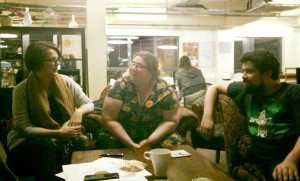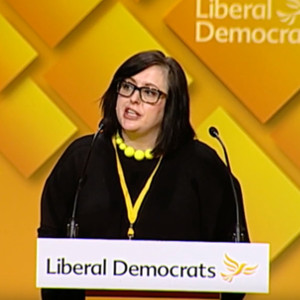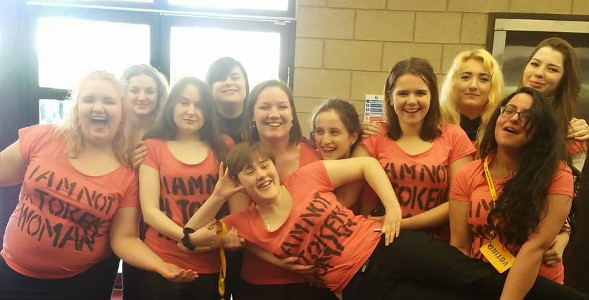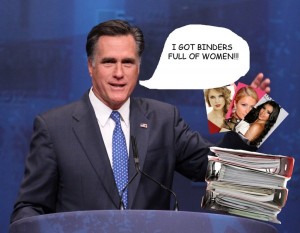Winning the Peoples’ Vote
It looks like the most plausible way for Britain to remain in the EU is for a Peoples’ Vote on the terms of Brexit, and with the newly-publicised allegations about involvement between Leave campaigners and Russian politicians, this may happen sooner rather than later. To be clear, this isn’t my preferred outcome – I’d rather Parliament got its collective head out of its arse and took responsibility for acting in the interests of the country. I’m also not convinced that we can have a meaningful Peoples’ Vote in the right time frame, certainly not without extending Article 50.
But how do we win a Peoples’ Vote, if one happens? It will be critical to do so – this is real double-or-nothing territory, and the same establishment forces will be out to trick people into thinking that leaving the EU is the simple solution to the complex problems we face.
Firstly, it will be most important of all to hammer home that the leave campaigns lied. Even more so if it turns out they cheated. This is by far the most important thing to sway soft Leavers and the ones who want us to “just get on with it”. Use quotes from leave campaigners after the referendum was won, about how the £350 million for the NHS was retracted the very same night, and so on. Put Farage’s quote of “I never promised it would be a huge success” over a photo of him looking smug on billboards around the country. Highlight the company movements and job losses over the last two years. The campaign slogan – “They fooled us once…”
Secondly, that won’t be enough. The Leave campaign identified real fears people have, and blamed them on immigrants and the EU. It was an easy sell after decades of tabloid stories. We need to address those fears and allay them, not play to them. We need to campaign on, for example:
- We have more say over our fate in a global economy as a member of the EU than outside it
- Freedom of Movement benefits us all, but how those benefits aren’t being felt equally in the UK due to our tax and employment
- Under-funding of the NHS and social services makes it easy to blame over-stretch on migrants, when it’s the Government’s fault in the first place
- UK fishing quotas are greater under the Common Fisheries Policy than they would be outside, and fishing licenses are allocated to large foreign-owned fleets by the UK Government
- There aren’t enough houses and we need to build more, and migration can help us with that
- Migrant workers undercutting locals is a failure in labour laws, not immigration policy
- We can better fund asylum services and allow asylum seekers to work while their claims are being processed, and have restored exit checks for visas, to reduce abuse of those systems while still retaining freedom of movement within the EU
We should advocate actual reform of the relationship between the EU institutions and the UK Parliament, such as direct election of the UK’s EU Commissioner, and having them be questioned by the UK Parliament; supporting the “lead candidate” system for the President of the European Commission; and of course using British Proportional Representation for elections to the European Parliament.
And it’s clear from these points that we can’t present a nationwide united front for the Remain cause. One of the problems with the Stronger In campaign is that it had to come up with messages that were acceptable across the Remain landscape, which meant fairly generic messages being handed out by an army of amazing enthusiastic volunteers. We couldn’t effectively challenge the blame placed on the EU by the Leave campaigns, because it meant criticising decisions made by political parties under the Stronger In umbrella.
Come the Peoples’ Vote, and we need to fight it as political parties and other campaign groups. We need to show a diversity of options for the UK Government to pursue to deal with the problems we face, which are caused by the UK Government and not by our membership of the EU, and which Brexit will make worse.
Tim Farron’s Resignation
Tonight I was planning on writing some posts about the need for British Proportional Representation. However, the resignation of Tim Farron MP as leader of the Liberal Democrats has occupied a lot of my attention. I’ve been discussing it on social media but obviously that’s not a place for nuance, so I figured I’d put something here. The tl;dr version is the bullet points at the bottom.
I’ve been on the executive of LGBT+ Liberal Democrats, the party’s body for LGBT+ equality, for about a decade. In that time I’ve worked with various party leaders and presidents to keep the Lib Dems at the forefront of the ongoing struggle for equality for sexual and gender minorities – a position we’ve held since the 1970s when we became the first party to support gay rights in a General Election manifesto, and the first party to host a debate on gay rights at our conference. Of the Lib Dem politicians I’ve met in this capacity, Tim Farron has been one of the most proactive in reaching out to us to offer the party’s political and infrastructural weight to aid our causes – both as President and as Leader.
Concerns about Tim’s beliefs and how they might impact his policy stance surfaced during the debates on Same-Sex Marriage – a Lib Dem policy pushed through in Coalition by equalities minister Lynne Featherstone. Tim abstained on some votes, along with Simon Hughes (who has had a complicated relationship between his Christianity and his bisexuality), claiming to want a more French-style system of civil marriage with optional religious blessing, and later to include further protections for trans people against the human rights-denying “spousal veto”. These explanations of his voting reassured some, but failed to convince others.
In 2015 when he became Leader, he faced his first test at the hands of Cathy Newman where refused to answer questions about whether gay sex was a sin. At the time, I was Chair of LGBT+ Lib Dems, and I really wasn’t bothered about the interview – as an atheist, the concept of religious sin means nothing to me; somebody else believing I’m going to hell for my sexuality doesn’t affect the way I live my life. However, a number of people in the party were deeply upset, including a few who resigned over the issue.
Two years later, the same questions were revisited by the same journalist and Tim still didn’t have an answer for them. This, I think, is where Tim must accept some of the blame – he’d had two years to prepare a snappy answer and failed to do so. Theresa May was asked the same question, and gave a quick off the cuff reply which shut down further debate despite her voting record. Tim’s line of “I’m running for Westminster, not the Vatican” was good, but it came far too late in the day.
LGBT+ Lib Dems made sure that the Liberal Democrats’ manifesto in 2017 was the most progressive on LGBT+ equality ever seen. As usual these policies have been passed by Conference and are the official positions of the Liberal Democrats, not a wish-list from an internal lobbying organisation as some of our opponents have. It was intensely frustrating to see the years of hard work that went into that being derailed in the campaign by Tim’s poor media handling
We had, for example, a fantastic story on Pre-Exposure Prophylaxis (PrEP) to prevent new HIV infections; unlike the Tories and Labour, we agreed with the Scottish NHS that enough research had been done to justify an immediate roll-out. In the short term we had a plan to fund it, and in the long term it would save money as preventing HIV is cheaper than treating it. It tied in with our national campaign message on funding the NHS and social care. But we didn’t get to tell that story – we were too busy on the defensive about Tim (including Jennie’s excellent HuffPo article).
Of course, a lot of the people stirring this particular pot were opposition activists, telling everybody that Tim is a homophobe. That isn’t true, but Tim’s actions made it an easy lie to believe, and to quote Swift, “Falsehood flies, and the Truth comes limping after it”. It derailed the election campaign, put us on the back foot, and cost us votes. I’m not sure how many, but in a campaign where we lost so many seats by so few votes, and so many activists report it coming up on the doorstep around the country, it’s highly likely that it made the difference between 12 MPs and 13 or 14.
Yesterday was an interesting day for me as a Lib Dem member. Lots of speculation about who should stand for Deputy Leader, and whether Tim should stand down as part of the constitutionally-mandated leadership election inside the next 12 months. Then Lord Brian Paddick resigned as Shadow Home Secretary. Then, a few hours later, Tim was gone. A lot has happened quickly and there’s a lot of hurt and anger flying around, not least in Tim’s resignation statement – understandable, but rather unhelpful.
To sum up my feelings on this:
- Tim is not a homophobe. As a Liberal Democrat and a Parliamentarian he’s been one of the more helpful people in the party most consistently dedicated to LGBT+ equality
- Tim was not hounded out because of his Christianity. There is a long and proud tradition of Christians in the Liberal Democrats, from our nonconformist roots, through to Charles Kennedy as leader, and Brian Paddick himself
- Tim’s inability to come up with a good answer to an entirely predictable question, two years after it was first asked, hurt the Lib Dems among a core demographic in a very tight General Election
- The dirt that stuck to Tim as a result would have remained throughout his leadership; I felt that he would have to stand down within 12 months
- Brian Paddick did the right thing in not making this more of an issue before Polling Day; he did the right thing in making sure it wasn’t forgotten about like it was in 2015
- I am sad that Tim has stood down, but not surprised, and slightly relieved
- I hope Tim is OK and has good people looking after him, and continues to play an active role in liberal and Liberal Democrat politics much as Nick Clegg has for the last two years
 And a final word – the Lib Dems are the best party for LGBT+ equality because for decades we’ve had committed volunteers as activists for LGBT+ Lib Dems and its predecessor organisations. If you’re at all interested in these issues, and especially if you want to help the party campaign on them around the country, please join LGBT+ Lib Dems.
And a final word – the Lib Dems are the best party for LGBT+ equality because for decades we’ve had committed volunteers as activists for LGBT+ Lib Dems and its predecessor organisations. If you’re at all interested in these issues, and especially if you want to help the party campaign on them around the country, please join LGBT+ Lib Dems.
The Next Elections we need Newbies to Win

Liz Leffman, helped to a storming second place by our newbies.
This week, the Lib Dems stormed to a strong second in the Tory heartland of Witney, leapfrogging from fourth. Thousands of volunteers from across the country piled down to David Cameron’s former constituency, and sent a shockwave through British politics. Life-long Tory voters, disgusted by Theresa May’s lurch to the hard-Brexit right, supported our hard-working local candidate.
As important as the ground-breaking result however was that many of the Lib Dem volunteers who pounded the streets, hit the phones or reached for their wallets in this campaign were new members, since the 2015 General Election and the EU Referendum. Turning members into activists is vital to the success of any political party, but more so to the Lib Dems who don’t have much budget for paid staff operations. The activists in Witney learned from the best, whether it was Candy Piercey, John Aylwyn, Neil Fawcett and many others on the ground, or the phone bankers trained by Claire Halliwell and James Baker at ALDC in Manchester, or many more.
Between now and Christmas, pretty much every local party in the Liberal Democrats will hold its Annual General Meeting, at which it will elect its volunteer committee to run local affairs for the next year. It’s really important that we empower our newbies to get involved at this level, rather than just see themselves as footsoldiers, and support them in their endeavours – they will bring fresh ideas and energy to the local party, hopefully some often-needed diversity, and enthusiasm. And most importantly, they will help break down barriers between the local party executive, and the membership. We need every local party in the country to be actively engaged with its membership, bringing liberal values to local communities as best we can. If we can’t manage that, keen liberals will drift away from the party and find themselves homeless and disengaged.
So if you are a new member of the party, please do stand for election at your AGM, whether it’s as an officer with a specific portfolio, or as a member of the executive, and make sure your local party engages all its members and plays its part in bringing about Our Liberal Britain.
Policy without the Wonks?
I’ve often said here that people join political parties because they care about specific issues, and they think the party is the best way to advance that issue. Having policy on an issue is one way to encourage people to join in the first place; being the kind of party that would do the “right” thing is another. If we want more people to join the Lib Dems, and to be enthusiastically engaged in our activities and campaigns, then we need to make sure that they’re getting traction on the issues they care about, and that often starts with a policy – a statement of what the Lib Dems think should be done about a particular issue.
Currently, policy making requires a certain amount of expert knowledge. There are a lot more people that care about issues, than know exactly what levers of power are available to be pulled, particularly at different levels such as council and Parliament. So how can we make policy formation more open to non-experts and more responsive? Firstly, we need to know what makes our members tick – what are the issues that move them? You’d be surprised how few local parties can answer this question, particularly about the members who aren’t already activists. Member surveys as part of your member communications process (whether that’s by phone, online or by post) can play a key role here, as can collecting this kind of data at a social event – get people to write down one reason why they joined on a post-it note, and collate them on a handy wall.
Secondly, we need to know what’s possible; this is where the policy experts do come in handy. We need to put the people who have the knowledge in touch with the people who have the desire. Ask around your current and former councillors, candidates and Parliamentarians. Nearby local parties or regions might be able to lend an expert; ALDC might be able to give guidance. How you put these together is up to you; different approaches will work for different local parties. Currently I’m planning some free-form discussion online, either using a forum over the space of a couple of weeks, or some online chat sessions, to flesh out proposals. I’d like to finish this with a day-long face-to-face event, perhaps structured like an Unconference.
Of course, the Lib Dems have a regional, state and national policy process for “official” policy which involves detailed policy motions being debated, amended and voted on at a conference. This requires a certain amount of expert knowledge, and the time and money to attend the conference. The approach I’ve outlined above is hopefully a little more flexible and can serve not only for local manifestos which tend to be a bit more ad-hoc, but also as a way of generating policy input into Conferences.
Inspired to Empower

Libertea in Manchester
 This sounds like some massively cheesy slogan for some TED Talk or “motivational guru”, but it’s mostly how I’m feeling after an evening at my local Libertea – our Liberal Drinks / #libdempint evening that takes place in a coffee shop rather than a pub. We still do the pub on alternating months, and get a slightly different crowd coming to each.
This sounds like some massively cheesy slogan for some TED Talk or “motivational guru”, but it’s mostly how I’m feeling after an evening at my local Libertea – our Liberal Drinks / #libdempint evening that takes place in a coffee shop rather than a pub. We still do the pub on alternating months, and get a slightly different crowd coming to each.
I’ve been reminded of something I may have lost sight of in recent months; the devastation and loss of the General Election gave way to the elation of the Lib Dem Fightback, which slowly but surely ebbed into routine, and perhaps I’ve been going through the motions of campaigning and organising events without stopping to think what it means.
I’ve been reminded that when people joined the Lib Dems in the aftermath of the General Election, they did so because they had an instinct that the fight for liberalism was important. I’ve been reminded that people join political parties to achieve things for the causes they care about, not to act as footsoldiers for an unaccountable clique. And yes, getting people elected is almost always a key part of achieving those things, but we need a holistic view – what we want to achieve and how winning elections helps us achieve it – to inspire people to campaign enthusiastically.
I’ve been reminded that not only can peoples’ attitudes and behaviour actively put people off getting involved, but also frustration at not being able to achieve what they joined the party to support. I’ve been reminded that it’s the job of us not-so-newbies to use our experience to help our new members experience the power of a political party to achieve positive liberal change, to see the whole picture of how an idea becomes a policy, becomes a campaign, becomes a candidate, becomes a councillor or Parliamentarian, becomes a victory, and how the cycle repeats and overlaps.
So thanks to all those at Libertea who have inspired me to double down and help our newbies get a real sense of achievement out of being a Liberal Democrat, to clear the obstacles and smooth the road so we can deliver a Liberal vision of the future, together.
Where Next for Diversity in the Liberal Democrats?

Becky Thomas moving the East Midlands Lib Dems amendment opposing All-Women Shortlists
Unfortunately, the amendment to remove all-women shortlists was defeated at Conference earlier today. The debate was generally good on both sides, though the summation was patronising in the extreme. Ultimately though, the strength of the leadership support and the long-trailed campaign including paid Facebook and Twitter adverts, helped to win the day. Sarah Brown’s excellent canary speech swayed a few undecided voters to support the amendment, but not enough.
Still, the voice of Conference has been heard, and it is time to look forward. I do not believe that AWS will solve all our problems, and I believe they need solving. This means I need to play a part in changing my party for the better, and help obviate the arguments made to support AWS before they become entrenched. Thinking more about the points from my last post on this, and from talking to members at conference, it seems that the problems that need to be tackled can be divided into a small number of intertwined areas:
- Direct discrimination and harassment, particularly of young and female members. This is effectively a pastoral care issue. We know from the Morrissey Report that the pastoral care in the party has been lacking. We now have a Pastoral Care Officer at LDHQ who is highly praised, but the party hasn’t managed to embed a culture of challenging harassment using the pastoral care system. I get the impression that people still think it’s too awkward, too much red tape, or too unlikely to get results. Perhaps we need another update to the Morrissey Report following the preliminary December 2014 review to give more confidence to members, or the Rock the Boat group to become some sort of support group for those making complaints.
- Concentration of power among unaccountable cliques, which entrenches unconscious (and conscious) bias in ways that are difficult to challenge through the democratic processes of the party. Changing the processes to improve transparency and accountability is a governance issue; the current Governance Review may be a good opportunity to challenge this at an institutional level, but practical suggestions must be made.
- Bias in recruitment and retention – this is a membership issue. The idea of my previous post, that development and target seats must meet local membership and leadership diversity targets to receive support from LDHQ, still seems to have merit; this would go some way to tackling the bias in winnable seats. As with the membership rebate scheme, giving ownership of this problem to local parties is likely to be the best way to see concrete results.
- The expectations we have of potential candidates, and the criteria we use (consciously or otherwise) to select them. This is a campaigns issue. We expect our candidates to primarily be “good campaigners”, rather than people who will make good councillors or Parliamentarians. This biases us towards the able-bodied, those without caring responsibilities, those who do not work long hours, and those who are able to handle the stress of being the focal point of the campaign trail. This even goes against our own best campaign practice about building strong teams and identifying candidates who will be good at the job once elected.
These problems are all interlinked to some degree – for example, if your local party isn’t diverse, then the power will always be held by a homogeneous group no matter how transparent and accountable the members of that group may be. And the solutions to these problems will be far more complex than the glib outlines I’ve made above. But I think that trying to tease the issues apart into different areas of responsibility may be helpful in finding a starting point. So what have I missed? Let me know!

Liberal Youth members protesting all-women shortlists, with “I Am Not A Token Woman” T-shirts
On THAT Motion, and Diversity within the Party

New Liberal Democrat chair of candidates, Mitt Romney
I’ve been following the discussions on motion F20, “Electing Diverse MPs”, for a while now. It’s also known as “the All-Women Shortlist” motion as that is one of its recommendations. It’s certainly controversial, particularly among women, and I honestly don’t know which way the vote is likely to go tomorrow morning. I am not going to get into some of the antics surrounding the establishment campaign to push this through, though I’d really like to rant about the (white cis male) person who told me I don’t care about diversity if I don’t support this motion.
When you strip away the reams of facts and figures in the run-up, what it’s proposing seems fairly limited to me:
Conference therefore resolves that to increase the proportion of Liberal Democrats from under-represented groups in the House of Commons the Liberal Democrats will:
- Continue and extend support for individuals seeking approval or selection as Westminster candidates from under-represented groups, thus building on the work that has been done in the past including the Leadership Programme.
- Create a ‘2020 Candidate Diversity Task Force’ to co-ordinate partywide efforts to actively recruit parliamentary candidates from underrepresented groups from both inside and outside the Party. This will include a focus on recruiting candidates with more than one protected characteristic and from minorities who are under-represented even within under-represented groups. The Task Force will work with ALDC and our cohort of councillors, recognising that, whilst local government is important in its own right, it can also be a good recruiting ground for potential Parliamentary candidates. It will report to the Federal Executive, working with the Diversity Engagement Group as appropriate. The Task Force will have one representative each from the three state parties, the Federal Executive, ALDC, EMLD, LDDA, LGBT+, LDW, Liberal Youth and PCA and be led by a Candidate Diversity Champion appointed by the Leader and the President. The Federal Executive Report to Conference will include updates on the work of the Candidate Diversity Task Force.
- Through the work of the 2020 Candidate Diversity Task Force and Candidate Diversity Champion, in association with SAOs, AOs, ALDC and parliamentary candidates, examine the party’s approval and selection processes, and the role of PPCs after selection, to identify barriers that may exist for under-represented groups, including those identified in the Speaker’s Conference on Parliamentary Selection, as well as disadvantaged groups including those from a low socioeconomic background. Solutions will be proposed to overcome these barriers; to seek to make proposals to increase diversity at all levels in the party; and to bring forward proposals on how to address the emotional, practical and financial challenges facing candidates from under-represented groups.
So point (A) is doing what we’re already doing; point (B) is also doing what we’re already doing – the groups mentioned are already represented through the Diversity Engagement Group, so this is just recreating the same organisation and giving it a task it should already be doing. (C) is an expansion of the thing that the group in (B) should be doing.
Conference recommends that:
- Any local party should be able to vote for an all-women shortlist or an all-disabled shortlist, or reserve some spaces for candidates from other under-represented groups.
- As a minimum the three state parties should follow the Canadian Liberal Party practice of requiring the relevant Local Party to provide documented evidence to their region or state (as relevant) of a thorough search for potential candidates from under-represented groups before being granted permission to start their Westminster selection process; this should apply in those seats where the Liberal Democrat parliamentary candidate received more than 15% of the vote in the 2015 General Election but the seat is not held by the Liberal Democrats.
- In Scotland, Wales and each Region of the English Party, take measures to move towards a slate of candidates that reflects the diversity of the state or region, in line with the Leader’s ambition of having at least 50% women candidates and at least 10% BAME candidates across Great Britain.
- If any sitting MP elected in 2015 decides not to contest the next General Election, his replacement should be selected from an all-women shortlist.
- In Scotland, Wales, and each Region of the English Party where there are two or more non-held seats which gained 25% or more of the General Election vote in May 2015, the regions should designate as a minimum of one seat not held by a Liberal Democrat MP to select its candidate from an all-women shortlist. Where these seats are affected by boundary changes, the party’s rules on re-running selection processes will apply.
- In addition to the one seat identified in 5. above, where the Liberal Democrat parliamentary result at the 2015 General Election was in the 10% of seats which had the highest percentage vote without returning a Liberal Democrat MP, the selection shortlist for the 2020 General Election should, subject to sufficient applications, include at least two candidates from under-represented groups.
Most of the points are aimed at all-women shortlists, and some of the others are vague, particularly the unspecified measures in (3). I was speaking to a regional candidate’s chair who was hard pressed to find enough people to stand in the 2015 General Election, who feels that the requirements to “provide documented evidence” and include candidates for under-represented groups will be either meaningless or impossible to meet based on the current ratios of women and BME people in particular who put themselves forward for candidate approval. He anticipates finding one or two token potential candidates to ship around the region to selection meetings to make up the numbers where local parties haven’t made any real effort to address diversity. I think this hits the crux of the problem for me – this motion is a top-down solution to a bottom-up problem.
I’m not going to get into whether doing this, or failing to do this, is “fundamentally illiberal”. That’s a silly argument, and I believe that most people, however they plan to vote, have good intentions. There are of course some people who deny that the Lib Dems have any diversity problem at all, but there’s no accounting for whatever planet they’re on. The question is, what problem are we trying to solve? Given the number of women who’ve told me they won’t stand for Parliament if the party adopts AWS, I’m not sure it’ll get us many more female candidates. I don’t think it’ll do anything to address some of the sexist attitudes within the party, nor the concentration of power among the typically male, pale ad stale usual suspects, and I fear that it may engender ill-will among activists which will make us less likely to elect female candidates selected under AWS, since we don’t have any safe seats to speak of.
Fortunately, the Federal Conference Committee has selected two good amendments for debate. The one from Ethnic Minority Lib Dems which aims to improve the motion’s approach to BME diversity is a no-brainer. The second, from the East Midlands Liberal Democrats, keeps the working group and the requirement for state and regional parties to take measure to reflect diversity, but removes the proposals for all-women shortlists. Since the proponents of the motion have been telling me that it’s about more than AWS and is a comprehensive strategy for diversity, I’m sure the same people wouldn’t describe this as a wrecking amendment. My hope is that the motion passes with both amendments, and that’s what I’ll be supporting. If the East Midlands amendment falls, I’m not sure how I’ll vote on the main motion – it comes down to whether perceived inaction on the part of the party will do us more harm than the negative effects of introducing AWS, and that’s a tough call to make.
Where Next?
As I mentioned in my conference diary post, I’m feeling a bit guilty that I didn’t engage with this motion sooner. I’m sure this blog, coming ten hours before the debate, won’t influence too many people ahead of the vote. But whatever Conference decides, we’ll have to live with it and move on. One argument in support of the motion is that “we’ve tried other things and they didn’t work” – this is unarguably true, but I think we need to consider why those other things didn’t work, and why we think that AWS might succeed where they failed. If we don’t understand that, and I haven’t seen any real attempt to do so, then this motion simply follows the “Yes, Prime Minister” adage – something must be done; this is something, therefore we must do it.
When challenged to provide an alternative to AWS, I thought back to the party’s membership rebate scheme – by giving tangible rewards to local parties for improving recruitment and retention, we saw a massive grass-roots recruiting effort which has increased our party’s membership base for eleven consecutive quarters. I’m wondering if we can do something similar here; since the motion is talking mainly about Parliamentary elections, let’s try to solve the diversity problem that way. I propose two simple tests; the more I think about them, the more I think this approach has legs.
- A constituency can only qualify as a “development seat” with regards to support provided by LDHQ if its Liberal Democrat membership reflects the diversity of the people it seeks to represent.
- A constituency can only qualify as a “target seat” with regards to support provided by LDHQ if its Liberal Democrat local executive reflects the diversity of the people it seeks to represent.
Of course, (2) is rather at the whim of the people who choose to stand for internal election, and the people who vote for them in those internal elections, but the same applies to Parliamentary candidate selection, so I’m not going to rule it out straight away.
There are other noble things which we can attempt – for a while, I thought that carrots and sticks to get people to attend the party’s excellent diversity and unconscious bias training would help, but the adage about taking a horse to water applies here.
We also need to tackle the big cultural problem that we select candidates who have plenty of personal time and money to invest into the election campaign, rather than selecting the candidates who would make great Lib Dem MPs and working around their current personal circumstances.
In any event, the only way we’re going to tackle this problem is by getting enough people at the grassroots to grasp it and address it head-on in their local community. I am sad to say that there is not enough of this in motion F20.
Conference Diary at First Glance

Possibly the only way to take part in most of the Conference activities.
The last few weeks for me have been absolutely hectic, and not in a particularly good way. So it’s only this evening that I’ve cracked open the agenda for Spring Conference and had a skim-read. As I’ve said before, there is loads to do at a party conference, and that’s just the formally scheduled activities; the seeing friends, going out for a drink or meal, catching up and swapping gossip and stories will comfortably fill any remaining gaps.
I figured I’d post my first-pass itinerary as some indication of what I intend to get up to. I expect I will put more policy debates in once I’ve had more of a chance to read them and think about how I can contribute and vote. Let me know what I’m missing!
I say this every time, but I need to get more organised in advance of Conference; I wanted to get an amendment in on the All-Women Shortlists motion (I wanted to write about this in some length but fortunately Jezz has done a great job on LDV), and I wanted to submit a question to the Federal Executive asking why we didn’t appear to have any contingency planning for staffing levels at party HQ in the event of the beating we took in May, which has left us flailing over the summer while trying to pick ourselves up. I hope that others will have done this for me, but I need to strike a better balance between the stuff I do to help promote and run the party, and using my power as a member to hold it to account.
Friday
| 3:00 | Check in to Flat |
| Consultative Sessions @ Novotel: Liberty and Security | |
| 6:30 – 7:30 | Conference Rally, Barbican |
| 8:15 – 9:30 | “The Ideas that built the Liberal Democrats”, Novotel MR4 |
Saturday
| 9:00 | F1 – F3: Opening of Conference and Reports |
| 11:00 | Training: Campaigning and Engaging with Diverse Communities, Novotel MR6 |
| 11:45 | F7: Regulatory Framework for Cannabis |
| 1:00 – 2:00 | Fringe: EU Referendum & Immigration: Turning Tide of Opinion, Hilton Minster |
| 2:20 | F8: Report of the Federal Executive |
| Lunch! | |
| 3:45 | Policy motion – “Privacy and Security in a Digital Age” |
| 4:50 | F16: AOs and SAOs to enrol |
| 6:15 | International Perspectives on Winning Referendum Campaigns, Novotel MR3 |
| 7:00 – 9:00 | EMLD on Diverse MPs motion, Melbourne Centre, Escrick Street |
| 10:00 | Glee Club, Novotel, Fishergate Suite |
Sunday
| 9:40 | F20: Electing Diverse MPs |
| 10:00 | Check out of Flat |
| 11:45 | F22: Tim Farron Speech |
| 1:00 | Close of Conference |
The Usual Suspects
Stagnant Power

Local party execs sometimes remain very stable…
(photo by Okinawa Soba, Creative Commons by-nc-sa 2.0)
The Liberal Democrats is a party with a huge amount of internal democracy. However, that democracy is rarely held to account or challenged ,at all levels. Local parties stagnate, with the same small clique rotating the officer positions. One thing that’s vital as part of the Lib Dem Fightback and our influx of new members is making sure we get new voices and fresh ideas represented on our elected bodies, and empowered to make decisions.
Of course, most of our members didn’t join a political party to form committees, hold meetings and take minutes, so local parties need to push to find ways to engage members – that means understanding their points of view even if they’re not all at a meeting. This can involve members’ surveys, or social events where you can get to know people.
The Usual Suspects

Never mind your local party exec, meet the people who do the real work.
However, politics is the art of exercising power, and there are plenty of positions, both official and unofficial, where Liberal Democrats can hold and exercise power with no accountability to the membership. These positions are often held by the Usual Suspects – the fixers, the people who Get Things Done.
Take for example the person who has the authority to nominate candidates – this is arranged centrally by LDHQ and is a position of significant power. Or the person who ends up organising local authority candidate training and approval in a hurry, and just emails around enough of their mates to make sure the bases are covered rather than looking to a wider pool. Or the person who volunteers to represent the party to an external body such as a community group, but never reports back to the membership or executive. Or the party staffer who ends up accountable to no management chain, let alone to the members on whose behalf they supposedly operate. Or, in my own situation, the person who hosts various IT systems on which a party body relies.
I’m sure that pretty much everybody in such positions is well meaning and effective. However, as liberals, we need to maintain transparency and accountability as a principle, before something goes wrong. A lot of the scandals within the Lib Dems (and outside it too) boil down to unaccountable people becoming too important to criticise. Beyond that, the Usual Suspects are also more likely to match the pale, male and stale image of our party, and that can derail attempts to improve diversity.
The Objective

Members old and new at a Manchester by-election, after opportunities to stand and help were advertised widely.
Everybody acting on behalf of the Liberal Democrats, whether at a local or national level, whether a volunteer or paid staff, should be in some way accountable to the membership, either directly or via a relevant elected body. Members should know who they are, what their powers and responsibilities are, and to whom they are accountable.
We should maximise liberty by promoting choice and taking actions to limit individual power. That can include having multiple people trained and authorised to do a job, making information widely available (whether it’s canvass data in Connect, or details of local community groups for candidates) and making sure that opportunities to volunteer or get involved are as widely advertised as possible. By advertised, I mean with enough background that a newcomer will feel empowered to get involved – whether that’s providing training before a campaign session, or letting people know in advance what to expect when they turn up to a Pizza and Politics night, and knowing whether there’s some kind of social activity once the Focus is delivered. Imagine you are a shy newbie who’s never been to an event like this before.
Ultimately, it’s about making sure members are empowered to achieve what they joined a political party to achieve. That might not fit in with the larger strategy that one of the Usual Suspects has come up with, but there has to be a balance between individual enthusiasm which keeps people motivated, and the worthy but dull admin work or leaflet delivery cult approach that ultimately wins us elections. And why should the larger strategy be decided by the Usual Suspects? The overall picture for our organisations should be clear, communicated to members, and open to debate and suggestions for improvement!
And yes, this is all easier said than done. A lot of these situations come about in the first place due to lack of motivated volunteers. But we always need to try and make them better, because stagnation will ultimately fail. The price of freedom is eternal vigilance, even within the Liberal Democrats.
Breaking from the Past
If you haven’t seen Tim Farron’s first Lib Dem leadership speech, you should. It’s good in general, but I want to concentrate on something said in the first ten minutes. He came to praise his predecessor Nick Clegg, not to bury him. He explicitly said that he was proud of Nick’s achievements in Government, proud that the Liberal Democrats had gone into Coalition to do our best by the country, and that the tough five years for us as a party was nothing compared to the tougher five months for the country under a majority Tory Government since May 2015.
Since Jeremy Corbyn became leader of the Labour Party, he has said nothing of substance about his predecessors. The general impression is that Labour is a brand-new party, completely separate from the days of Miliband, let alone the days of Brown and definitely the days of Blair. Any criticism of Labour’s record, both in Government and in Opposition, is met with “Yeah but that was before Corbyn”. I don’t believe that that dismissal is valid, even if we ignore Corbyn and McDonnell’s terrible, meaningless U-turn on the Fiscal Charter (exposed neatly by John Humphrys’ interview with Diane Abbott around 2:42), and the inevitable further cock-ups and rebellions to follow. Most of the Labour MPs under Corbyn’s leadership were MPs under Miliband, and many under Blair and Brown (including Corbyn himself). They have their own power and ability to influence the party’s direction. There is a long-term threat to rebels in terms of deselection and replacement in 2020, but a party is always more than just its leader. Especially if, as Corbyn says, he wants a less Presidential style of leadership – and the Parliamentary Party still has a lot of Blair, Brown and Miliband about it.
The same sort of people who put Labour above reproach are the ones who claim that the Lib Dems are “still Tories” because Farron hasn’t actively disassociated himself from the Coalition – despite never having served in the Coalition Government – because he hasn’t disowned Clegg. We must remember that today’s Labour party is not so different from yesterdays’, or the day before that, and continue to hold Labour’s feet to the fire for their failures in Government and in Opposition.



